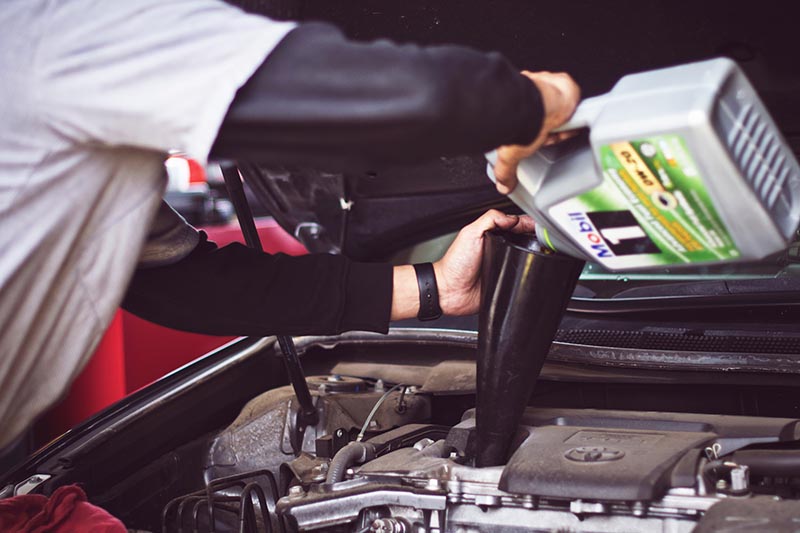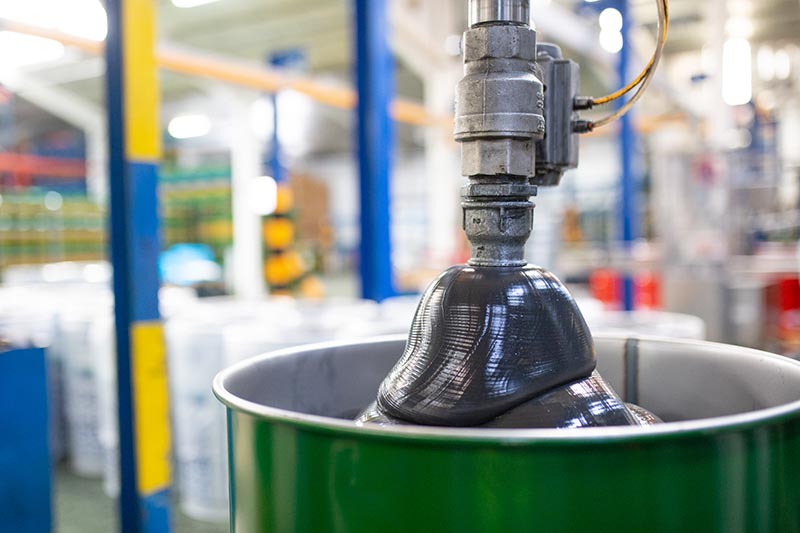
API finalises lubricants LCA and carbon footprinting report
The American Petroleum Institute (API) Lubricant Standards Group passed a motion to ballot API Technical Report 1533: Lubricants Life Cycle Assessment and Carbon Footprinting — Methodology and Best Practice on December 15, 2022. The technical report was chartered by the API Lubricants Sustainability Working Group, which was formed in June 2021. A 60-day ballot granted stakeholders an extended period to review the report.
Voting on the technical report closed on February 20, 2023, and results were shared by API’s Dennis Bachelder, senior engineer, during a meeting of the API Lubricant Standards Group on February 23 in San Antonio, Texas, U.S.A. A strong ballot response rate of 95% was achieved with an approval rate of “just under 90%.” Bachelder also noted an “exceptional number of comments” in ballot responses.

Stakeholder comments have been referred to the subject matter experts (SMEs) that represented API member companies and interested parties in the development of the document. SMEs have begun resolving the comments, which will either be accepted, accepted in principle, noted or not accepted. Irrespective of the outcome of the comments, there was sufficient support for a passing ballot, and the technical report will be published soon. A list of ballot comments will be made available to the Lubricants Standard Group. Comment resolution will not be completed until after the SME review.
Companies are facing increasing requirements to quantify the environmental performance of their products, processes or services throughout the supply chain. The purpose of API Technical Report 1533 is to define terminologies and to identify and capture best practices for the life cycle assessment (LCA) and carbon footprinting of lubricants.
Established methodologies are available for LCA and carbon footprints of products (CFP) from the International Organisation for Standardisation (ISO). Nevertheless, significant decisions are still required during these assessments that can dramatically impact the outcome, says API. The technical report seeks alignment on these choices to establish a common LCA and CFP framework for lubricant products to enable a fair comparison of different studies. Due to strong industry interest in CFP, much of the discussion in the report is focused on CFP assessments. Although, most concepts are generally applicable to both LCA and CFP evaluations.
The API report promotes a consistent approach across the lubricants industry. The purpose, scope, definitions, acronyms and abbreviations are all included in the document for greater clarity and general methodological recommendations are outlined in section 4 of the report.

API Technical Report 1533 defines the CFP for a lubricant product on a cradle-to-grave basis. Section 5 includes considerations along each of the life cycle stages including raw materials, production, packaging, logistics, in-use and end-of-life stages. API TR 1533 touches on “in use benefits” and the concept of “avoided emissions”—due to fuel economy gains and extended oil drain intervals—in section 6.
Previously, the Lubricant Standards Group indicated the technical report will continue to evolve as the science advances. The document was initially intended to be developed as a standard, before proceeding as a technical report to be issued on a one-time basis. However, Bachelder outlined the intention of the Lubricant Standards Group to continue to develop the technical report into an API standard. All comments received on the first edition will be included in future efforts to develop the API standard, says Bachelder.
Before the technical report can be published it needs to go through API’s editorial process to ensure appropriate wording and language. This work will be completed in parallel to the SME comments review, says Bachelder. A three- to four-week timeframe is anticipated with the technical report likely to be published in April 2023. API intends to present the final report at the Asian Lubricants Industry Association (ALIA) Annual Meeting that will be held on June 12-13 in Kuala Lumpur, Malaysia. The ALIA event theme is “Developing Resilience and Robustness in an Uncertain World.”

A similar sustainability endeavour is underway in Europe. On February 1, 2023, the Union of the European Lubricants Industry (UEIL) and the Technical Association of the European Lubricants Industry (ATIEL) announced a joint effort to develop a methodology to calculate and report PCFs for the lubricants and greases industries.
UEIL emphasised an increasing requirement for lubricant and grease blenders/marketers to provide PCFs for products—despite the absence of a common industry standard methodology. In a statement, Mattia Adani, UEIL president, indicated that the ability “to determine Product Carbon Footprints for lubricants on a common, harmonised basis for the whole European Lubricants Industry is a decisive capability that we want to develop jointly with ATIEL.”
A working group has been established to advance this project and independent consultants have been contracted by UEIL and ATIEL on behalf of the industry. Work began in January 2023 and the trade associations expect to deliver its PCF methodology in the second half of 2023. However, in a letter template designed for stakeholders, UEIL flagged that the lubricant and grease industries’ ability to provide PCF data is contingent on the availability of PCFs from upstream raw materials providers. These companies may require time to adapt to the common methodology, they say.
The trade associations are looking to ensure the output aligns with the objectives of the European Green Deal, Europe’s legislative framework for climate action, and globally, and provides consistency and transparency throughout the entire supply chain. According to industry sources, the European approach is “about 80%” aligned with API’s.








